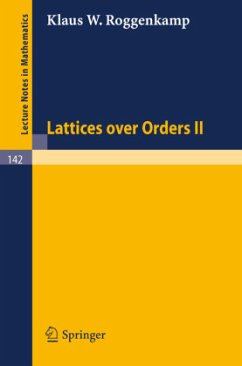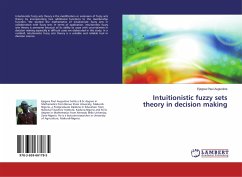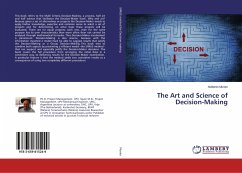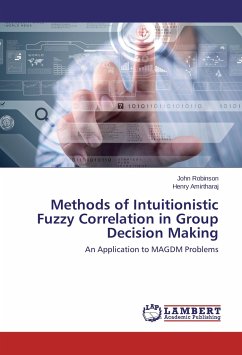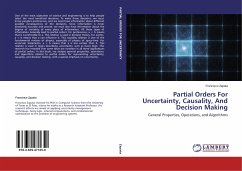
Partial Orders For Uncertainty, Causality, And Decision Making
General Properties, Operations, and Algorithms
Versandkostenfrei!
Versandfertig in 6-10 Tagen
51,99 €
inkl. MwSt.

PAYBACK Punkte
26 °P sammeln!
One of the main objectives of science and engineering is to help people select the most beneficial decisions. To make these decisions, we must know people's preferences, and we must have information about different possible consequences of the decisions. Since information is never absolutely accurate and precise, we must also have information about the degree of certainty of every piece of information. All these types of information naturally lead to partial orders: for preferences, a < b means that b is preferable to a. This relation is used in decision theory. For events, a < b means that a ...
One of the main objectives of science and engineering is to help people select the most beneficial decisions. To make these decisions, we must know people's preferences, and we must have information about different possible consequences of the decisions. Since information is never absolutely accurate and precise, we must also have information about the degree of certainty of every piece of information. All these types of information naturally lead to partial orders: for preferences, a < b means that b is preferable to a. This relation is used in decision theory. For events, a < b means that a can influence b. This causality relation is one of the fundamental notions of physics, especially of physics of space-time. For uncertain statements, a < b means that a is less certain than b. This relation is used in logics describing uncertainty, such as fuzzy logic. This research has revealed that some ideas are common in all three applications of partial orders. In this book, we analyze general properties, operations, and algorithms related to partial orders for representing uncertainty, causality, and decision making, with a special emphasis on uncertainty.



